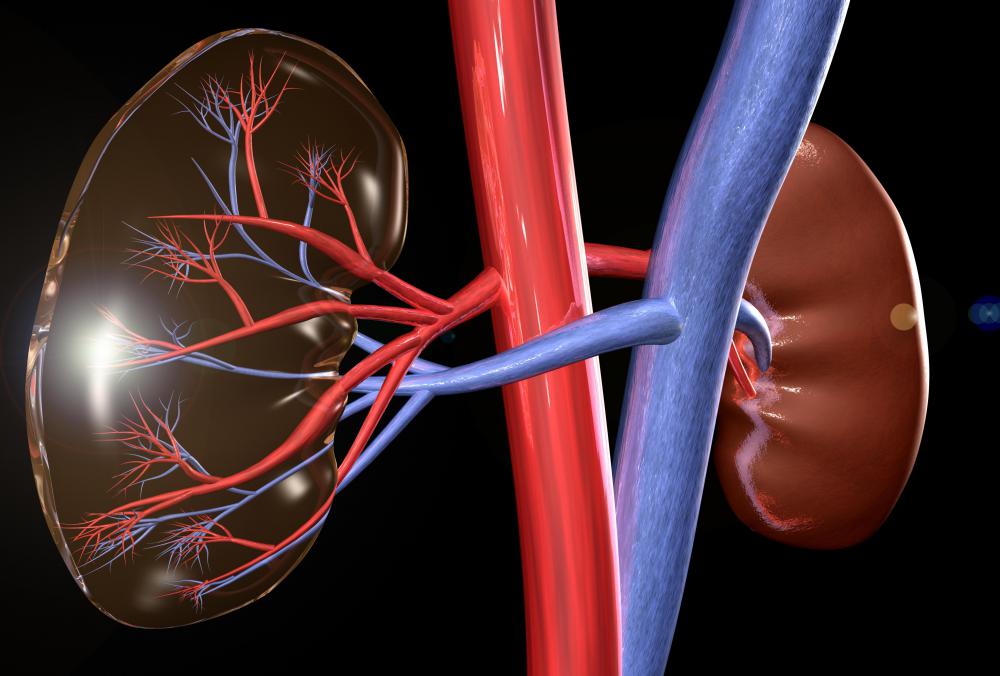At WiseGEEK, we're committed to delivering accurate, trustworthy information. Our expert-authored content is rigorously fact-checked and sourced from credible authorities. Discover how we uphold the highest standards in providing you with reliable knowledge.
What is Alport Syndrome?
Alport syndrome, also called hereditary nephritis, is a congenital disorder characterized by glomerulonephritis, or inflammation of the glomeruli, the small blood vessels in the kidneys. It also causes hearing loss, hematuria or blood in the urine, advanced kidney disease, and sometimes vision disorders. It is named after English physician Cecil A. Alport, who first identified the disease in 1927.
Alport syndrome is caused by mutations in one or more of the collage biosynthesis genes COL4A3, COL4A4, and COL4A5, which are important in the structural composition of the kidney, ear, and eye. Alport syndrome causes the basement membranes of these organs, which provide physical support to their cells. It results in the inability of the kidneys to filter waste from the blood efficiently, causing blood and protein to enter the urine, leading to gradual scarring of the kidneys and eventually kidney failure.

Alport syndrome is usually an X-linked disorder, causing males with one parent with the defective gene to develop the disorder, but only causing the disease in females who inherit two copies of the defective gene. Therefore, females are more often carriers of the disease who can pass it on to their children, but have no symptoms themselves. There is also a recessive form of Alport syndrome with the defective gene located on a different chromosome, chromosome 2. In this form, both parents must carry the defective gene in order for their child, male or female, to potentially inherit the disease.

Alport syndrome is diagnosed through family history of kidney inflammation, with end stage kidney disease in at least two family members, by genetic analysis, and by the observation of symptoms including gradual hearing loss, blood in the urine, structural abnormalities in the basement membrane of the kidneys, and benign tumors in the esophagus or female genitalia. There is no known cure for Alport syndrome, so it is treated by addressing the symptoms. Angiotensin-converting enzyme (ACE) inhibitors, pharmaceuticals usually used to treat high blood pressure and heart failure, can be used to address the protein in the urine. If the disease progresses to kidney failure, dialysis and kidney transplant are possible treatments. Gene therapy, in which healthy genes are inserted into the patient's tissues, is a potential method of treating Alport syndrome, but it has not yet been perfected.
AS FEATURED ON:
AS FEATURED ON:













Discuss this Article
Post your comments